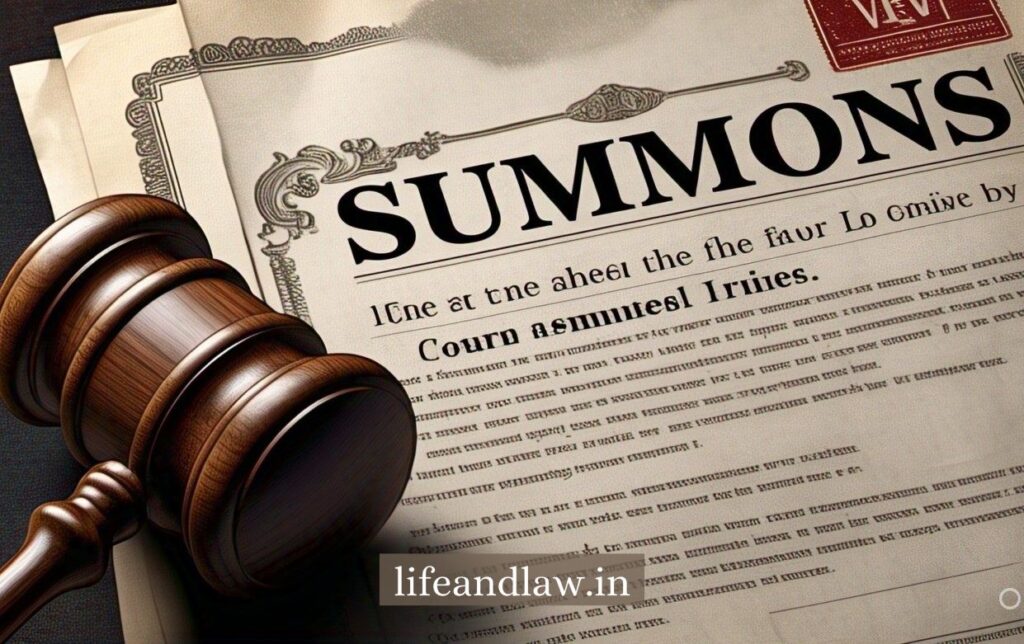Trending

Many people find the legal process new, confusing, and intimidating. This is especially true when someone receives a summons from the court in their name, which can heighten feelings of anxiety and confusion. Many people are unclear of what a summons is, why it is issued, and how to respond. Many people believe that receiving a summons indicates that a criminal charge has been filed, although not all summonses are related to criminal matters.
It is critical to act promptly and appropriately after obtaining a summons. Ignoring a summon can result in legal issues. As a result, it is critical to understand what measures to do after obtaining one, how to prepare, and how to seek legal counsel.
This article defines a summons and explains what to do after receiving one.
A summons is a legal order issued by a court to a person. This order instructs the concerned person to appear in court on a certain date and time. Summons are typically issued for two purposes:
Present necessary documents or proof before the court.
Civil Summons: Generally given to notify a person about a court proceeding and instruct them to appear in court. For example, in situations of debt recovery, property disputes, or breach of contract.
Criminal Summons: Issued to a person participating in a criminal case, either as an accused or as a witness. If the summons is disregarded, a warrant may be issued later.
A summons is a court order requiring a person to appear before it. There are various reasons why someone could receive a summon:
As a Defendant – If a civil or criminal action is launched against you, the court may summon you to give your testimony.
As a Witness – If you witnessed an occurrence or have vital information, the court may summon you to testify.
To Submit Documents – The court may order you to disclose papers or evidence relevant to the case.
To Attend Court Hearings – Occasionally, your presence is required during ongoing court processes.
Ignoring a summons might result in legal implication, therefore prompt and right response is essential.
A court summon usually includes the following crucial details:
1.Name and Location of the Court – Clearly indicates which court issued the summons.
2.Case Number and Names of the Parties Involved – Identifies the particular case and the person being summoned.
3.Date and Time to Appear – Determines when and at what hour you must appear in court.
4.Reason for the Summons – Explain why you are being called (as a witness, defendant, or to provide evidence).
5.Signature of the Officer and Court Seal – Validates the summons with an official signature and a court stamp.
Read the Summons Carefully
Understand which court issued it, why, and the date/time of your appearance. This allows you to plan your future steps more efficiently.
Seek Legal Advice
Consult a lawyer promptly after obtaining the summons. A lawyer will explain your rights and duties, as well as how to respond. For further information, you can contact Adv. Abdul Mulla at http://www.lifeandlaw.in or http://www.asmlegalservices.in.
Prepare Necessary Documents
Collect and arrange any documents or evidence relevant to the case, then share them with your lawyer. This can aid your cause.
Appear in Court on Time
It is critical that you attend court on the designated date and time. Failure to do so may result in the court issuing a warrant against you.
Respond Appropriately
Make sure you grasp the court’s expectations—whether it’s delivering testimony, submitting papers, or presenting your defense—and plan accordingly.
A summons should not create alarm. It is critical to completely comprehend the information contained in the summon. Being there in court on time and obeying the instructions given is critical for avoiding future legal issues. Ignoring a summon may cause the court to issue a warrant, complicating the matter.
In such cases, consulting with an expert lawyer is crucial. Legal advice preserves your rights and enables you to respond effectively. As a result, seeking legal representation quickly after obtaining a summons is critical for your safety. For expert assistance, you may contact Adv. Abdul Mulla at http://www.lifeandlaw.in or http://www.asmlegalservices.in.
Adv. Abdul Mulla (Mob. No. 937 007 2022) is a seasoned legal professional with over 18 years of experience in advocacy, specializing in diverse areas of law, including Real Estate and Property Law, Matrimonial and Divorce Matters, Litigation and Dispute Resolution, and Will and Succession Planning. read more….
Copyright BlazeThemes. 2025